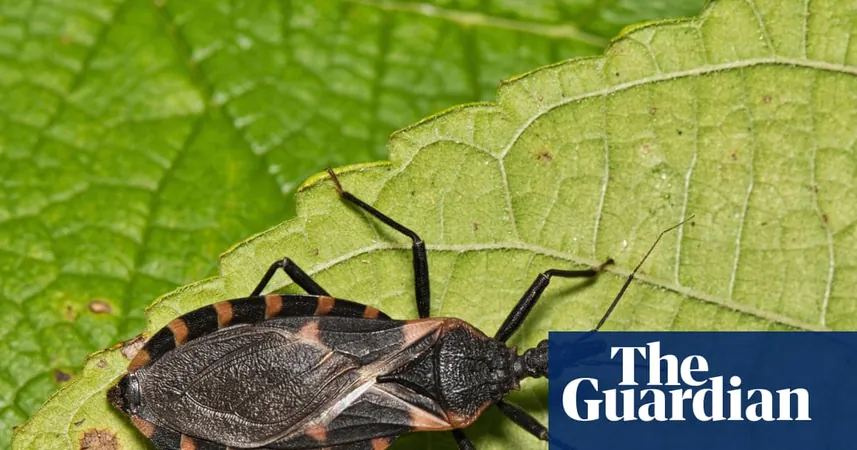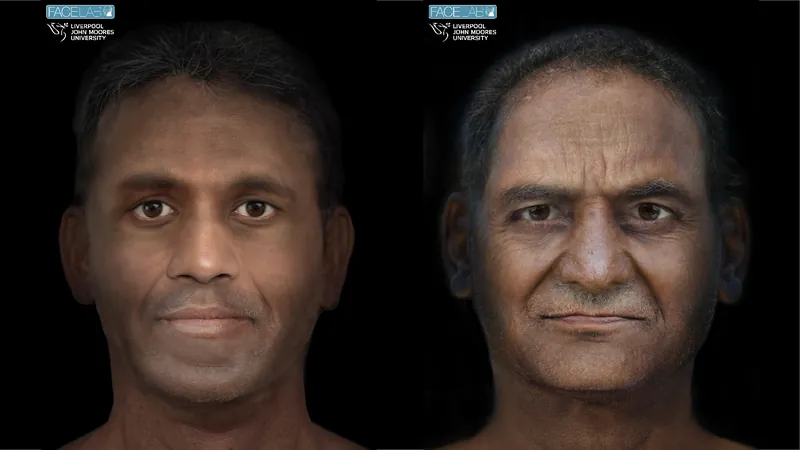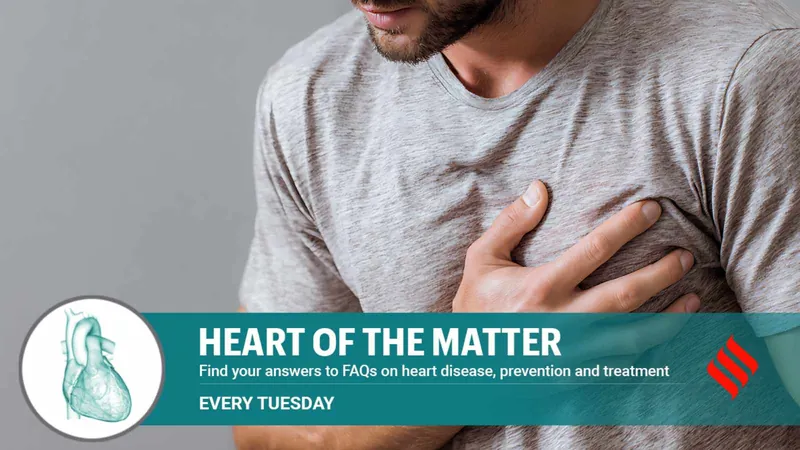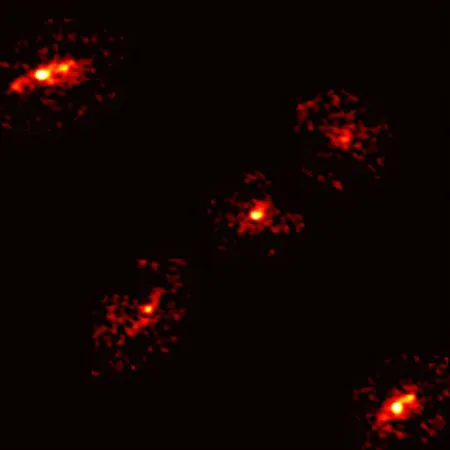
‘Kissing Bug’ Disease: A Looming Threat in the U.S. That Everyone Should Know About
2025-09-13
Author: Sarah
A Life-Changing Blood Donation
In a heartwarming attempt to help others, a high school student named Luna donated blood in Miami this past February, proudly reporting back to her mother, Valerie, about her generous act. Little did they know, this decision would reveal a hidden danger—one that neither had ever heard of.
The Shocking Diagnosis
Weeks after the donation, the family received a letter that changed their lives forever. Luna had tested positive for Chagas disease, a serious illness caused by a parasite transmitted by the infamous kissing bugs. This was a shocking revelation for the family, as Chagas is more commonly associated with rural regions of Latin America.
Why Isn’t Chagas on Everyone’s Radar?
According to Dr. Norman Beatty, an expert on these tiny terrorizers, most people in the United States are blissfully unaware of Chagas, despite its growing presence. Beatty is part of a team advocating for Chagas to be recognized as an endemic disease in the U.S., stressing the urgent need for public awareness.
Understanding Kissing Bugs and Their Perils
The kissing bug spreads the Chagas parasite through its droppings, which can enter the human body through cuts, eyes, or even the mouth. Symptoms may range from fever and fatigue to eyelid swelling—many initially remain asymptomatic. However, a staggering 20-30% of those infected could face chronic complications later in life, including heart failure or digestive issues.
The Hidden Scale of the Epidemic
Shockingly, around 8 million people are estimated to have Chagas globally, with approximately 280,000 cases reported in the U.S. alone. Historical evidence shows that the disease has existed here for centuries, with cases traced back to ancient remains in Texas.
The Need for Increased Awareness and Screening
With local infections reported across eight states, a recent study published in the CDC's Emerging Infectious Diseases journal urges for urgent action. The lack of designation as an endemic disease has led to chronic underreporting and low awareness, posing additional risks.
Challenges in Medical Understanding
Dr. Bernardo Moreno Peniche, another report author, highlights that many physicians mistakenly associate Chagas with other vector-borne diseases or believe it doesn't exist in the U.S. However, Dr. Beatty is routinely treating U.S. patients who contracted the disease abroad.
Frustration in Medical Care
After the shocking diagnosis, Valerie felt frustrated with the medical system. Initial doctors suggested Luna might experience a false positive before she eventually found Dr. Beatty, who provided effective treatment.
A Call for Action: Getting Tested
The recommended approach for treating Chagas, even in asymptomatic cases like Luna’s, is early detection and treatment. Luna endured a two-month treatment, facing unpleasant side effects but improving her chances of avoiding chronic health issues.
Moving Forward Together
Valerie hopes that the CDC steps up its focus on Chagas, raising awareness to encourage testing and proper treatment. As Luna embarks on her recovery, her story serves as a vital call to action: we cannot afford to ignore this burgeoning health threat any longer.



 Brasil (PT)
Brasil (PT)
 Canada (EN)
Canada (EN)
 Chile (ES)
Chile (ES)
 Česko (CS)
Česko (CS)
 대한민국 (KO)
대한민국 (KO)
 España (ES)
España (ES)
 France (FR)
France (FR)
 Hong Kong (EN)
Hong Kong (EN)
 Italia (IT)
Italia (IT)
 日本 (JA)
日本 (JA)
 Magyarország (HU)
Magyarország (HU)
 Norge (NO)
Norge (NO)
 Polska (PL)
Polska (PL)
 Schweiz (DE)
Schweiz (DE)
 Singapore (EN)
Singapore (EN)
 Sverige (SV)
Sverige (SV)
 Suomi (FI)
Suomi (FI)
 Türkiye (TR)
Türkiye (TR)
 الإمارات العربية المتحدة (AR)
الإمارات العربية المتحدة (AR)